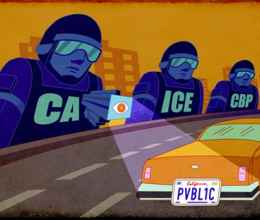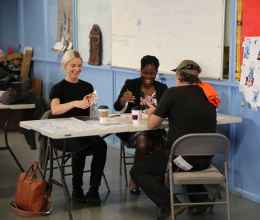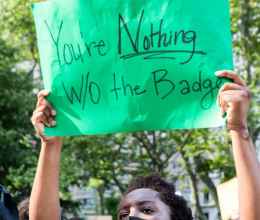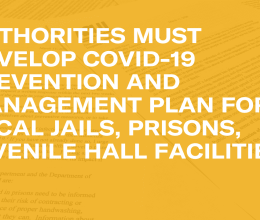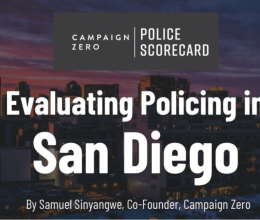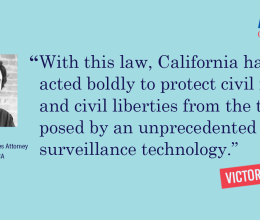The following is the testimony delivered by ACLU-SDIC Policy Associate, Chelsey Birgisdóttir, as she spoke before the Public Safety and Liveable Neighborhoods Committee.
Good morning, Councilmembers.
My name is Chelsey Birgisdottir. I am a policy associate with the ACLU of San Diego & Imperial Counties.
Please keep in mind that the data collected under AB 953 is more than just a collection of data points. Each figure represents a person whose life has been affected by a police stop.
We are glad to hear about the technology infrastructure changes the San Diego Police Department (SDPD) has made, as well as their contract with the Center for Policing Equity. We look forward to hearing more about the policy changes and practices this data inspires because collecting information is meaningless if it doesn’t result in changes in police practices.
Words from the late Maya Angelou are instructive: “When you know better, do better.”
The police department has taken a great first step in contracting with an independent party to analyze and understand the AB 953 data. However, the information gathered in prior reports should have already resulted in meaningful change.
A 2002 report commissioned by the San Diego Police Department, analyzing stop data from 2000 and 2001, indicated that Black and Latino drivers were over-represented in vehicle stops. And once stopped, Black and Latino drivers were more likely to be searched than Asian Pacific Islander and white drivers.
Likewise, the 2016 San Diego State University study showed that, at almost every level of police encounter, there were clear disparities in who police stopped, questioned and searched. For example, Black drivers were more than twice as likely to be subjected to field interviews compared to white drivers.
The report also revealed that police were twice as likely to search Black and Latino drivers than white drivers following a traffic stop. Black people were less likely to be found with contraband despite the police’s high search rate of this group.
It is important to hear from the police department what has been done to address these disparities and what it plans to do with the information gathered from the AB 953 implementation.
Here are a few questions, eight in total, that need answering:
- What policy changes has the department made since the 2016 SDSU study?
- What will the department do differently if or when the AB 953 data shows similar findings as the 2002 and 2016 reports?
- Does the department plan to hire an independent contractor annually to analyze the data? Will the contractor examine information, such as, the number of stop forms collected and completed, any disparities found in the stops, racial bias complaints, outcomes of those complaints, and any action taken by SDPD to mitigate disparities identified in the data?
- Has the data collected under AB 953 been integrated with the SDPD’s early intervention program as recommended to your department by the SDSU researchers? This would allow supervisors to track trends in real time to address any problems.
- What is the completion rate thus far in implementing AB 953 data collection?
- Is there ongoing training regarding implementing AB 953 data collection with officers? If so, can you provide more information about it?
- Is there a mechanism in place that allows a supervisor to know if an officer is not complying with data collection? What type of discipline occurs for failure to comply?
- What happens to data collection cards with missing information?
Numerous people here have shared their stories about being profiled by the police. SDPD has collected profiling data as early as 2000 because of complaints and concerns from the community. Teams of scholars have produced lengthy reports on this issue. All of them confirm what we already know: Police bias and profiling are real. The pain it causes is real.
It is not enough to study and analyze police profiling.
More training must not be the end of the conversation. This is not a problem we can train our way out of. We must change policies and practices.
We call on the San Diego Police Department and the San Diego City Council to:
- Acknowledge that SDPD has a biased policing problem.
- Change practices and develop policies that address disparities. The police have many tools and a lot of power at their disposal. They must be thoughtful and discerning about how these tools and power are used.
- Take action to protect communities that have been overpoliced.
- Hold officers who have a history of racial and identity bias accountable.
Thank you to Councilmember Montgomery for your leadership in addressing police transparency and accountability issues. We know better and it’s about time that SDPD do better.
Thank you for your time.

